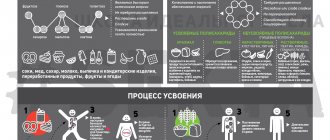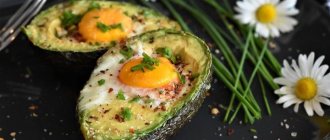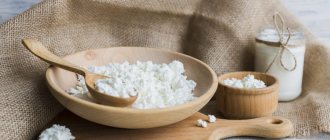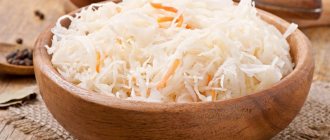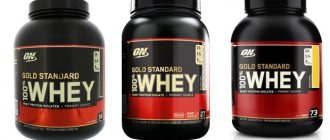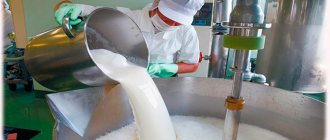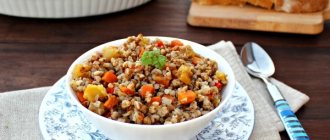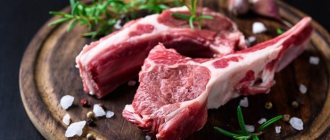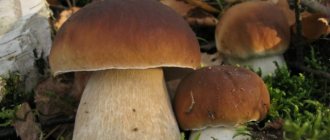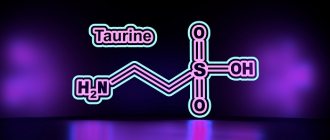Fats play a vital role in human life. This is the main component for building cells and tissues. Fats are a source of energy, form its strategic reserve and perform many other tasks.
Plant foods are very beneficial. The substances contained in them cannot be synthesized by the human body themselves, so they must be regularly supplied with food. Vegetable oils contain vitamins, micro- and macroelements, the deficiency of which negatively affects health.
What is vegetable fat
The category of such oils usually includes fats of vegetable origin. The extract consists of triglycerides of fatty acids in combination with associated substances (free fatty acids, waxes, sterols, phospholipids, etc.). Oilseeds, which are used to obtain oils, are divided into 4 groups:
- oilseed seeds: flax, soybean, sesame, rapeseed, black cumin, milk thistle, mustard, hemp, poppy, sunflower, cotton;
- fruits of oilseeds: olives, palms;
- waste from processing raw materials containing oils: fruit seeds of grapes, apricots, cherries, as well as seeds of watermelon, pumpkin, sea buckthorn, melon, tomatoes, wheat germ, rice, corn;
- nuts: almonds, coconut, hazelnuts, walnuts, Brazilian, pine, pecan, macadamia.
The process of obtaining vegetable fats is relatively simple, so they can be produced even at home. During the industrial cycle, useful elements are lost in parallel with the removal of excess and harmful impurities. All vegetable fats are divided into 3 groups according to their saturation with acids (plants can belong to different types from the classification above):
- Saturated (solid). They have a dense structure, are extremely poorly digested and settle inside the body. These include palm oil, coconut oil, cocoa oil (this also includes all animal oils).
- Monosaturated liquid (oleic acid, omega-9). Peanut, olive, rapeseed, almond, avocado are useful for diabetes and cancer.
- Polyunsaturated (monounsaturated) liquid (omega-3, omega-6) - are not produced by the body, but their consumption has a beneficial effect on the body. Such oils include sunflower, corn, flaxseed, soybean, etc.
The role and functions of fats in the human body
The role of fats in the human body is significant. They perform several vital functions for humans. The importance of fats in the body is evident from their participation in the work of various organs.
- The main function of fats is energy. A person receives most of their energy from carbohydrates; triglycerides contain reserve energy, which is required in case of a lack of carbohydrates.
- Fat-soluble vitamins A, D, E, K move, dissolve, and are absorbed due to the transport function of triglycerides.
- Subcutaneous fat is stored as an energy reserve and is used when there is a deficiency of nutrients, so triglycerides have a storage function.
- Triglycerides are a good heat insulator that protects against hypothermia. They have a thermal insulation function.
- The protective function of triglycerides helps protect human organs from harmful mechanical influences.
- Structural function. Triglycerides are the building blocks of cells.
- Regulatory function. Triglycerides help regulate the production of steroid hormones necessary for metabolism, reproductive organs, and the immune system.
Therefore, it is necessary to know the importance of fats for a person so as not to give them up completely. What are triglycerides needed for? For proper, full functioning of the body.
What do healthy fats mean?
Healthy triglycerides contain monounsaturated fatty acids: palmitic, oleic, and polyunsaturated fatty acids: linoleic - Omega 6, alpha-linoleic - Omega 3, eicosapentoenoic, docosahexaenoic, conjugated linoleic. A person gets useful triglycerides from food because the body does not generate them in the required quantities.
We need useful triglycerides for the growth and strengthening of muscles, for the proper functioning of the heart and blood vessels, for strengthening the immune system, for metabolic processes, and for the production of testosterone.
Sources of healthy fats: vegetable oil, avocados, olives, fish, nuts, seeds, olives.
Manufacturing
In fact, there are two ways to obtain vegetable fats: pressing and extraction. Industrial volumes and sanitary standards require a long, multi-stage cycle, during which most oils lose their natural value. This is due to the fact that by removing harmful components, it is impossible to separate them from beneficial substances. Because of this, there is constant debate about what type of production and what degree of purification is most beneficial. A simplified production cycle looks like this:
- Processing and purification of raw materials. Grain products are cleaned of debris, husks, and leaves. The hard inner kernels are crushed and fried to a certain degree. For soft fruits (for example, olives), only grinding is used.
- Oil release. When using mechanical extraction, the entire process consists of applying pressure to the raw material mass until the oil is released. For extraction, a special solvent is used, which is mixed with the raw material. After some time it is pumped out. Further operations are specific to each individual crop. The resulting product can already be eaten, but the taste and smell are far from store standards.
- Filtration and settling. For example, for olive oil, this is the last stage of production.
- Refining – removal of mineral and organic substances. The procedure is aimed at improving the taste and technological qualities of the oil. At the same time, refining removes many beneficial vitamins, minerals, phosphatides, and fatty acids. At the same time, oil hydration occurs.
Receipt and processing
We will not describe in detail the technologies for obtaining oil and all their possible options. There are two main methods of oil extraction – the pressing method and extraction. In the first case, the mass, pre-treated with moisture and heat, is squeezed out under a press. This method can be considered the cleanest and most environmentally friendly. By the way, the most expensive and healthy olive oil, which can be recognized by the inscription on the Virgin or Extra Virgin packaging, is obtained by cold pressing. The raw material is heated to no more than 27°C. Extra Virgin is characterized by even stricter adherence to technology. The acid content in it should be no more than 1%, and some companies limit it to 0.8%.
But during pressing, a large amount of oil still remains in the raw material. It is not profitable. Therefore, at the next stage - extraction - the oil is extracted using special extraction gasoline. This is already alarming. However, experts assure that if the technologies were followed exactly, the product will not cause any harm. It's best not to buy the cheapest oil.
Compound
The composition of vegetable fat directly depends on the source plant. The composition contains mandatory components that form the oil structure of the product. The main thing that needs to be mentioned is: do not believe advertising and branding that claims to remove cholesterol from the product, because it is not found in vegetable oils.
The saturation of natural non-animal fats with vitamins and microelements after the production cycle is artificial. The basic composition of any vegetable oil looks like this:
- unsaturated fatty acids: butyric, caproic, caprylic, decenoic, lauric, myristic, palmitic, stearic, linoleic, nervonic, arachidic, etc.;
- wax;
- phospholipids;
- sterols;
- glycerol;
- vitamins, minerals, microelements.
Chia seeds
Chia seeds are not typically thought of as a "fatty" food. However, 100 grams of chia seeds contain 31 grams of healthy fats. Considering that almost all of the carbohydrates in chia seeds are fiber, the majority of their calories (80%) actually come from fat. This makes them an excellent fatty plant food.
And it's not just any fat—most of the fat in chia seeds is a healthy omega-3 fatty acid called alpha-linolenic acid (ALA).
Chia seeds also have numerous beneficial properties that help lower blood pressure and reduce inflammation in the body (39, 40).
They are also incredibly nutritious. In addition to being rich in dietary fiber and omega-3 fatty acids, chia seeds are also rich in minerals.
Summary:
Chia seeds are very rich in healthy fats, especially an omega-3 fatty acid called ALA. They are also high in fiber and minerals and have numerous health benefits.
The nutritional value
Although nutritionists widely claim that vegetable fats are healthier than animal fats, you need to remember about the calorie content. The average number of calories per 100 grams is 900 kcal, with fats making up about 98% of the total mass of the substance. This means that valuable beneficial elements, vitamins, etc. – less than 1.5%, the rest are neutral binding components. Nutritional value is an indicator that directly depends on the melting point of the product. The lower this indicator, the better the fat is absorbed.
Refined deodorized vegetable oil is mineralized and fortified artificially, because after refining, everything useful is also lost. This does not prevent vegetable fats from being the main supplier of vitamins (for example, group E), microelements, polyunsaturated fatty acids, which are absolutely important for the body).
| № | Type of vegetable oil | Vitamin E, mg/100 g. | Vitamin K, mg/100 g. | Zinc, mg/100 g. | Phosphorus, mg/100 g. | Iron, mg/100 g. |
| 1 | Rapeseed | 18,9 | — | — | 2 | — |
| 2 | Peanut | 15,7 | — | 0,01 | 2 | — |
| 3 | Coconut | 0,09 | 0.5 mcg | — | — | 0,04 |
| 4 | Sunflower | 44 | — | — | 2 | — |
| 5 | Linen | 2,1 | — | — | 2 | — |
| 6 | Olive | 14 | 62 mcg | — | — | 0,4 |
| 7 | Soy | 17 | — | — | 2 | — |
| 8 | Corn | 18,6 | — | — | 2 | — |
| 9 | Palm | 33 | — | — | 2 | — |
Fatty fish
One of the few animal products whose benefits scientists tirelessly talk about is fatty fish. Fatty fish include salmon, trout, mackerel, sardines and herring (for a complete list of sea, river and lake fatty fish, see Fatty Fish: List, Health Benefits).
This fish is rich in cardiovascular-healthy omega-3 fatty acids, high-quality proteins, and all sorts of important nutrients.
Research shows that people who eat fish tend to be much healthier, and have a significantly lower risk of developing heart disease, depression, dementia, and all types of common diseases (26, 27, 28).
If you can't (or don't want to) eat fish, then taking fish oil may be beneficial for your body. Cod liver fish oil is the best - it contains all the omega-3 fatty acids you need, as well as large amounts of vitamin D.
Summary:
Fatty fish such as salmon, mackerel and herring are rich in important nutrients, especially omega-3 fatty acids. Eating fatty fish is associated with improved health and a reduced risk of developing all types of diseases.
Kinds
Vegetable fats are usually divided into those containing saturated and unsaturated acids. The first include stearic and palmic. A large concentration of such fats leads to the production of bad cholesterol and the formation of plaques on the walls of blood vessels. Once accumulated, this leads to the development of atherosclerosis. Most saturated acids are found in solid oils (palm, coconut, etc.).
Vegetable oils with a high content of unsaturated fatty acids (linolan, arachidonic, docosahexaenoic) are considered to be most beneficial for health when consumed correctly. Their lack causes negative effects from dry skin to slow growth in children, impaired vision, etc. These acids are found in large quantities in nuts, liquid vegetable oils, and pumpkin seeds.
Classification
R.m.f. depending on their physical state and fatty acid composition can be classified: into liquid (for example, soybean, sunflower, rapeseed, olive, cottonseed, corn); solid (cocoa butter, coconut, palm, palm kernel); drying (linseed, hemp, tung); semi-drying (sunflower, corn); non-drying (castor, olive, rapeseed); linoleic group (sunflower, corn); linolenic group (flaxseed); oleic group (olive, peanut); oleic-linoleic group (sesame); erucic group (rapeseed, mustard); palmitic group (palm); lauric group (coconut, palm kernel).
Harm and benefit
In a simplified sense, fat is the main source of energy for the body (80% of human energy reserves). Vegetable oil contains various acids, phytosterols, and phospholipids, which are absolutely important for normal metabolism. Nutritionists strongly recommend completely abandoning solid and animal fats, because vegetable oil has more beneficial properties:
- polyunsaturated acids omega-6 and omega-3 are not produced by the human body, but are vital for health (prevent blood clots and increased blood pressure);
- vegetable oil stimulates tissue regeneration;
- natural first cold-pressed oils - suppliers of large amounts of vitamin E, which has a positive effect on the condition of the skin;
- vegetable fats are minimally involved in the formation of bad cholesterol, which provokes atherosclerosis;
- metabolic processes are accelerated;
- blood composition normalizes;
- proper nutrition, balancing the vegetable and meat components in the diet, promotes weight loss;
- the immune system is strengthened;
- a strong cell membrane is formed;
- heart function is normalized;
- the strength and elasticity of blood vessels increases;
- retinol and similar substances protect the body from radiation exposure, reduce the risk of cancer, diabetes, and activate protein synthesis.
It is impossible to unambiguously determine the harmfulness of fats, since the negative effect directly depends on the amount consumed and the method of processing the oil. Such a product can also be harmful if you use it exclusively, completely abandoning animal lard. A cheap product of plant origin, with fanatical adherence to diets, provokes serious consequences:
- an excess of vegetable fats without a balance with animals can cause infertility in women;
- after severe heat treatment, oxidized polyunsaturated fats provoke thinning of the artery walls;
- oxidized fats are not absorbed by the body, but settle on the walls of blood vessels, which in the future provokes heart pathologies, cancer, obesity, and diseases of the gastrointestinal tract.
- Coffee calories
- Airbrush for nails - which one is better to use. Why do you need an airbrush for nails, video and photo
- Cheat meal - what is it in weight loss, how to organize it correctly
Beneficial features
Fats are involved in almost all the most important processes in the human body. With their help, hormones are synthesized, new cellular structures are formed, and fat-soluble vitamins are better absorbed. If there is not enough fat, vitamin deficiency develops, which means the risk of skin diseases and rickets increases.
In addition, fats protect the body from freezing and serve as a source of energy that is stored in the body “just in case.” When a person is forced to starve, is cold, or is under extreme stress, these substances come to the rescue.
Vegetable fats are used not only in cooking, but also in the medical field. They are digested much faster and easier than animal products. On their basis, ointments, massage products, and preparations in capsules for oral administration are made.
What other benefits do vegetable fats bring:
- prevent blood clots and surges in blood pressure;
- stops skin aging processes;
- normalizes the production of female hormones;
- help strengthen the immune defense, which means they help to quickly cope with colds and other diseases;
- improve metabolism, restore full digestion.
Sunflower oil during pregnancy
It is important for expectant mothers to properly balance their diet for the full development of the baby. After eliminating many foods, pregnant women often develop problems with the gastrointestinal tract, teeth, hair, and nails deteriorate. Constipation is associated with changes in lifestyle and the rhythm of the body's functioning: low mobility, additional weight, change in diet. In order to normalize the functioning of the gastrointestinal tract, it is recommended to take 2-3 tablespoons of sunflower oil per day (you can simply add it to salads, rather than drink it in its pure form).
Saturation with vitamins A, B and E and additional minerals will improve the condition of nails, hair and teeth. It is important to remember that such a product should be used only in its original form without any heat treatment. In this case, it will help solve cosmetic problems, get rid of constipation and heartburn. The only obstacle to the use of sunflower oil is individual intolerance.
Top Sources of Healthy Fats
Coconut oil
Lauric acid has antibacterial and antifungal properties. Antioxidants in the oil prevent the development of inflammatory processes. The product should be used if you have cardiovascular diseases. Coconut oil is recommended for use in baking. It is recommended to be used in combination with smoothies, yoghurts, and cereals.
Nuts
Walnuts contain omega-3. A small amount of nuts will help lower cholesterol levels and improve the condition of blood vessels. Consuming the product will help prevent the formation of blood clots. Just 30 g of other types of nuts (pecans, pistachios, cashews, almonds, peanuts) per day will help balance your diet.
Olive oil
Monounsaturated fats, vitamins, antioxidants are good for the heart. The product helps neutralize inflammatory and oxidative processes. Olive oil is not recommended to be consumed when heated. It is best used for preparing cold appetizers.
Chia seeds
The seeds contain omega-3, protein, fiber, and a large number of microelements. Restrictions should be observed when consuming the product. This will help prevent the development of allergies and dysfunction of the gastrointestinal tract.
The seeds are recommended for use when baking bread, buns, preparing salads, and snacks. Chia seeds go great with steamed vegetables.
Fish fat
Fish oil enters the body with fish. The best sources are fatty varieties - salmon or tuna. Fish oil supplements are sold in pharmacies. Adding fish to your diet will help increase the level of good cholesterol in your blood. Fish oil speeds up metabolism and promotes weight loss. The yellow color of the capsule is evidence of the natural origin of the dietary supplement.
Avocado
The average fruit contains 23 g of fatty acids, most of which are classified as monounsaturated. A medium-sized avocado contains 40% of your daily fiber requirement. The product also contains lutein, an antioxidant that is beneficial for the eyes. Accelerates metabolic processes, breaks down fats, promotes weight loss. Avocado is a useful substitute for mayonnaise, butter, and sour cream. Due to its high energy value, it is recommended to consume up to 1/4 of the fruit at a time.
Flax seeds
A cup of ground seeds contains 48 grams of unsaturated fat. 1-2 tbsp. l. per day will help you get the required amount. Omega-3 allows you to fill the fat deficiency in a vegetarian menu. A large amount of lignans will help prevent certain types of cancer. Insoluble and soluble fiber helps maintain a feeling of fullness and protects the heart.
Read the article for flax seeds' medicinal properties and contraindications.
Dark chocolate
30 g of product contains 9 g of fat, 3 g of fiber. Dark chocolate also contains vitamins A, B and E, flavonoids, and calcium. When choosing, you should give preference to dark chocolate with a cocoa bean content of 70%.
Tofu
Despite its relatively low fat content, tofu is a good source of monounsaturated and polyunsaturated fats. 80 g of product contains 5-6 g of healthy fat, 1 g of natural saturated fat. Tofu contains calcium, sodium, and protein.
Young soybeans
Beans contain polyunsaturated and monounsaturated fats, vegetable proteins and fiber. It is recommended to boil or salt them and make them into snacks.
Sunflower seeds
The seeds are recommended to be used as an addition to salad or eaten separately. A small handful will help you get your daily intake of proteins, good fats, and fiber.
Eggs
Eggs are an affordable source of protein. 5 g of fat in one egg provides 1.5 g of unsaturated fat. The product is also a source of choline, vitamin B. According to research results, it was found that eating eggs does not affect blood cholesterol levels.
Beef and pork
100 g of lean meat contains 5 g of fat, up to 2 g of which is saturated. 25 g of protein per 100 g of product will be beneficial for muscle growth. Beef is also rich in iron and zinc. Processed pork is recommended for consumption in moderation. Due to the sodium and nitrite content, it is recommended to replace pork with other types of meat.
Whole milk
220 g of whole milk contains 8 g of fat, 5 g of which is saturated fat. Vitamins A and D are classified as fat-soluble and are easily absorbed.
Whole yogurt
When choosing whole yogurt, you need to check the composition of the product. Active cultures promote bowel function. Classic yogurt without filler is considered healthy due to the lack of sugar in the composition. Adding nuts and fresh fruits will help improve the taste and make the product healthy.
Parmesan
100g of Parmesan contains 27g of fat, 18g of which is saturated fat. The product contains a large amount of protein and calcium.
List of products with vegetable fats
The current situation in the food industry is such that vegetable fats are present in all products. The greatest controversy is surrounding palm oil, but scientists do not yet know how harmful or beneficial it is. In stores, it is advisable to carefully read the composition of the product so that you can imagine what is inside. Which food products most often contain refined deodorized palm oil:
- spread, margarine;
- freeze-dried foods (instant noodles);
- ice cream, desserts;
- processed cheese, dairy products;
- industrial baking, bakery products;
- ready-made porridges;
- pastry creams;
- products that imitate meat (soy substitutes);
- sweets, chocolate;
- salad dressings;
- fast food of any kind (contains hydrogenated fats).
Main Products
As discussed above, all vegetable fats are divided into liquid (oils) and solid.
| Product type | Consistency | Properties | How to use |
| Sunflower | Liquid | Positively affects the functioning of the heart and gastrointestinal tract. Improves the condition of skin and hair. | For dressing salads, baking, frying. Used in the production of margarine, mayonnaise, and sauces. |
| Olive | Liquid | Helps lower cholesterol, improves metabolism and helps get rid of extra pounds. | In cooking, cosmetology, during diets. |
| Corn | Liquid | Regulates cholesterol metabolism, improves cerebral circulation, reduces nervous tension. | For frying, stewing, dressing salads, making dough. Used in the treatment of sclerosis. |
| Soy | Liquid | It is perfectly absorbed by the body, helps strengthen the immune system, and helps fight stress. | For frying, in sauces, in baby food (suitable for children with allergies). |
| Rapeseed | Liquid | Helps the cardiovascular system by reducing the level of bad cholesterol in the blood. | In the food industry, cosmetology, medicine (for the production of external products, skin and hair care products). |
| Linen | Liquid | Normalizes metabolism, improves digestive processes, increases immune defense. | For dressing salads and porridges. You can't fry on it. |
| Sesame | Liquid | Beneficial for the heart and blood vessels, endocrine system, female genital organs. | It is actively used in the national cuisine of India and other Asian countries. You can only season ready-made dishes, you cannot fry them. |
| Mustard | Liquid | Promotes tissue healing and has bactericidal properties. | For salads, baking, canning. Oxidation occurs slowly compared to other types of products. |
| Palm | Semi-solid | An excellent natural antioxidant, improves the condition of skin and hair. | In the food industry. It is mainly used only for frying, since at low temperatures it becomes semi-solid. |
| Avocado | Liquid | Helps restore the beauty of the skin and lose excess weight. | Cooking, seasoning main courses. |
| Cocoa | Solid | It has wound-healing properties and tones. | For the manufacture of confectionery products, medicine, cosmetology. |
| Coconut | Solid | Restores hair structure and restores beauty to the skin. When consumed with high-calorie foods, it promotes weight gain. | For making margarine and filling in cakes. |
| Palm kernel | Solid | Pleasant to the taste and smell. | For the production of margarine, confectionery products, cosmetology, perfume industry. |
Is it possible to eat foods high in fat?
Vegetable fat is not a substitute for animal analogues. Nutritionists, in pursuit of revenue, have seriously intimidated those who monitor their weight and health that a lot of fat is bad. In fact, it is important to eat a healthy and balanced diet. Even foods saturated with fats are not harmful if they are compensated by a healthy lifestyle and natural products. The problem with losing weight is the carbohydrates, not the fats. Restrictions on the use of natural oils occur only in case of personal intolerance in a particular person.
To eat or not to eat?
So is it worth eating them, what vegetable fats are best to include in your menu? As you can understand from the article, the main thing is to approach this issue consciously and, of course, have a sense of proportion. We all know which foods are considered harmful. Even if it is difficult to exclude them from the diet completely, it is worth consuming mayonnaise and ready-made baked goods containing trans fats less often. Give preference to high-quality vegetable oils and nuts, but keep in mind that they are very high in calories, because oil is almost pure fat, and nuts contain up to 60-70%.
Contraindications
It is not recommended to eat unrefined oil after improper storage or heat treatment: during the frying process, the constituent substances are modified into trans fats (it is better to prepare salads based on it). Vegetable fats in large quantities are contraindicated for those suffering from cholelithiasis. If you have regular diarrhea, the oil should be limited due to its stable laxative effect. If a person decides to replace animal oils with vegetable oils, one should consult a gastroenterologist and nutritionist.
Can they cause harm?
Adverse reactions are possible only when the product is consumed uncontrollably and in large quantities. Polyunsaturated fats Omega-3 and Omega-6 are oxidized in the human body; excessive amounts of them can provoke mutations in cellular structures. This leads to cardiovascular pathologies, malignant neoplasms and other problems.
It is important to choose the highest quality products from trusted brands. Unscrupulous manufacturers add synthetic components to vegetable fats that have a detrimental effect on the human body.
Negative consequences also arise from improper storage. For example, if oil is stored in a metal container, it may quickly deteriorate due to oxidative processes.
Various types of vegetable fats become hazardous to health when heated to too high temperatures. If oil is allowed to be heated repeatedly, carcinogens will form in it.
Thus, the product is not only not harmful, but also healthy if consumed in moderation, stored correctly and following cooking technology.

